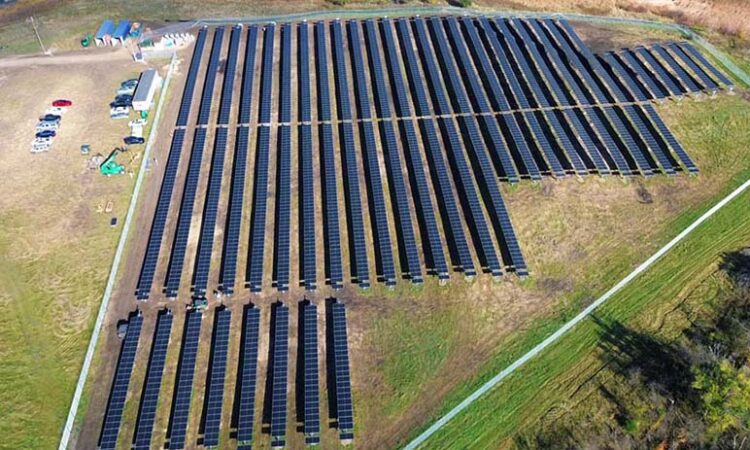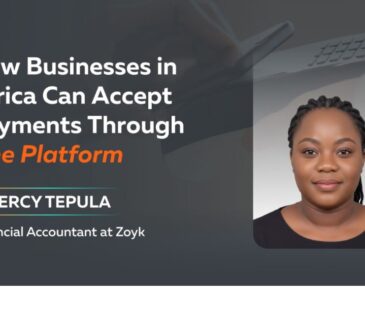
The Blueprint
- Enterprise Energy raised $600,000 for solar projects via Climatize.
- Enterprise Energy offered 11.25% annual interest on a two-year contract
- Crowdfunding offers developers financing as federal tax credits decline.
- Climatize and similar apps simplify small clean energy investments.
New financing ideas will be needed as clean energy developers enter a time of less government support.
Over the next two years, the Trump administration will end the 30% tax credit that has helped build the wind and solar industries. Subsidies for energy development will not end; instead, they will shift to fossil fuel companies that have long enjoyed government support.
That creates a problem for clean energy developers in financing projects. Many have relied partly on wooing investors with tax credits. A handful have combined tax credits with other models, such as creating nonprofits and raising money through crowdfunding, bolstered by an appealing interest rate.
A new community solar developer, Enterprise Energy in Minneapolis, has added a relatively new funding source to support the development of community solar projects. Enterprise Energy CEO Eric Pasi sees the crowdfunding option as a good one as the industry faces future funding hurdles. He has seen a class of investors emerge, seeking organizations with a social mission alongside a reasonable rate of return. “I think that there’s an appetite on behalf of investors,” he said.
Launched three years ago, Enterprise Energy builds community solar projects designed to serve primarily low- and moderate-income subscribers. Recently, it has attracted financing through the website and app Climatize, created by Climatize Earth Securities LLC.
In July of this year, Enterprise Energy launched a program for an Illinois community solar project and raised $200,000 in under a week. A bit later in the year, the company brought in $400,000 for a Minnesota project in just two weeks.
Several hundred people participated in the crowdfunding campaign, with an average investment of $2,000. Enterprise Energy offered a hefty 11.25% annual interest on a two-year contract, a return that beats many mutual funds and other investment options.
The high rate is still lower than Enterprise Energy would pay for bank loans. Pasi said the money goes toward development capital to cover utility studies, permitting costs, and environmental reviews. Banks consider those activities “risky” because adverse studies and permits could lead to project termination, Pasi said.
Development capital sometimes involves “predatory lenders” who will take over projects if developers slip up on paperwork or charge exorbitant fees following a project’s success, he said. Replacing those loans with a crowdfunding source would be a key to the company’s future, he believes.
It turns out that the platform serves double duty as both a financing vehicle and a means to convince communities that they—and their constituents—can benefit from hosting community solar.
“As we’re going out and talking with counties and communities and townships about hosting these projects, we began offering a financial opportunity for people to participate and feel some ownership of the project,” he said.
Climatize has hosted 27 clean energy projects since launching in May 2023, raising more than $12 million for solar developers, according to CEO and co-founder Will Wiseman. Another company, Mission Energy, is also using the platform to raise money for a solar project on a medical warehouse in Minneapolis.
Climatize vets projects for regulatory compliance and transparency before they go live. It charges no investor fees. Typically, investors receive a return of 6.5% to 10%, making Enterprise Energy’s offering a bit richer than average, Wiseman said.
As with all investments, clean energy projects carry risks for investors, including the loss of principal. However, Climatize has a good track record, and in July and August, it reported breaking records for total investments, a reflection of investor confidence and solid project fundamentals, Wiseman said. Nearly all projects have reached their financial goals, as reflected in Enterprise Energy’s record.
“Their success shows what’s possible when well-structured renewable energy projects meet a motivated investor community,” he said. “It’s proof that aligned incentives can drive real progress in the energy transition.”
Pasi’s crowdfunding strategy borrows from his former boss, solar energy pioneer Ralph Jacobson, who spends his retirement helping build solar installations on Indian reservations and, through his nonprofit Solstar, in north Minneapolis.
Jacobson, the founder of IPS Solar, taps wealthy individuals to help finance projects and offers them a return on investment, albeit one that is more modest than the one provided by Enterprise Energy. Pasi is one of his investors and partners.
Jacobson offers a 3.5% interest rate to his investors, many of whom like the social mission of his enterprise. That’s still a deal for him because bank financing would cost more than 6%.
Jacobson offers a measure of caution. Making solar crowdfunding more common nationally will require significant investments from wealthy investors and foundations. “To scale this, you really need the involvement of people with capital,” he said.
Avisen attorney Jerry Kalin, who works in the clean energy space, said he has been impressed by Climatize and Raise Green, a similar platform. The platforms conform to securities regulations and make it “really, really simple” for small investors to support clean energy and environmentally related projects, and for companies to offer them a competitive interest rate in return.
Despite federal retrenchment from clean energy, Kalin said the tax changes still allow for credits over the next three or more years. The investment gap will only grow as the tax credits are phased out, leaving developers scrambling for alternative financing.
“I’m excited about seeing more and more different solutions, including crowdfunding or small investments,” Kalin said. Clean energy financing apps will grow even “before the tax credit sunsets,” he added.
So far, Enterprise Energy has built and sold a handful of community solar projects, including two to one of its partners, US Solar. In addition to building community solar for low- and moderate-income populations, it collaborates with other organizations, such as Native Sun Power Development, to train more people of color for solar jobs.
Pasi, a person of color, wants a more diverse workforce and a continued focus on an energy system fueled by clean sources. He’s happy that small investors are sharing that vision of the future.




